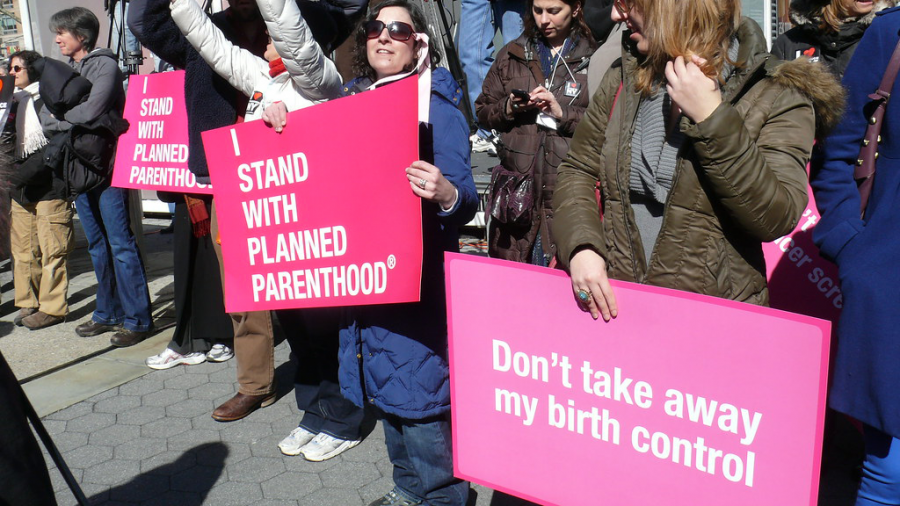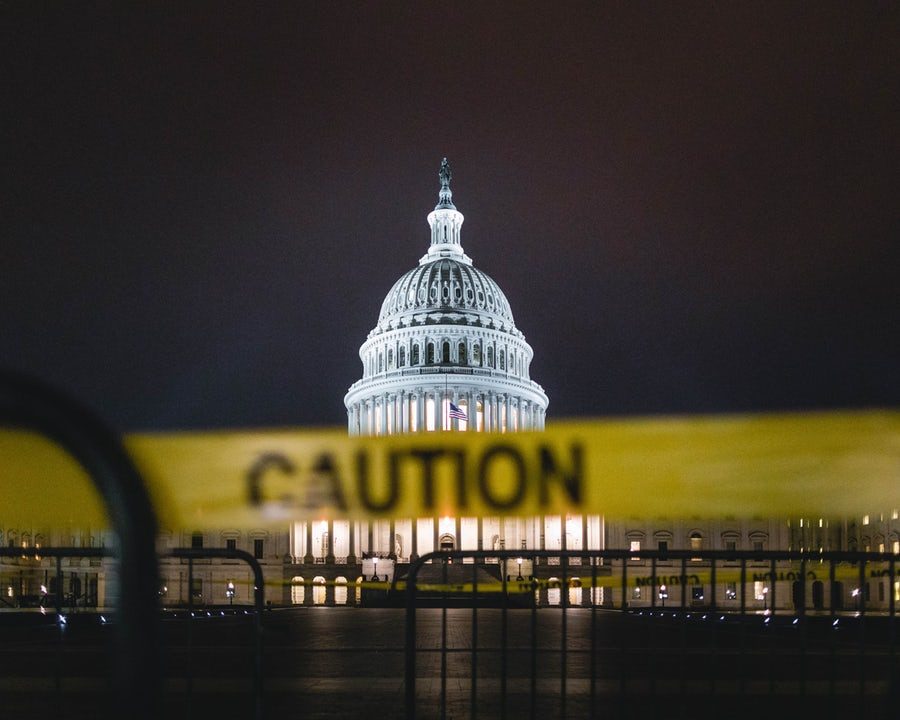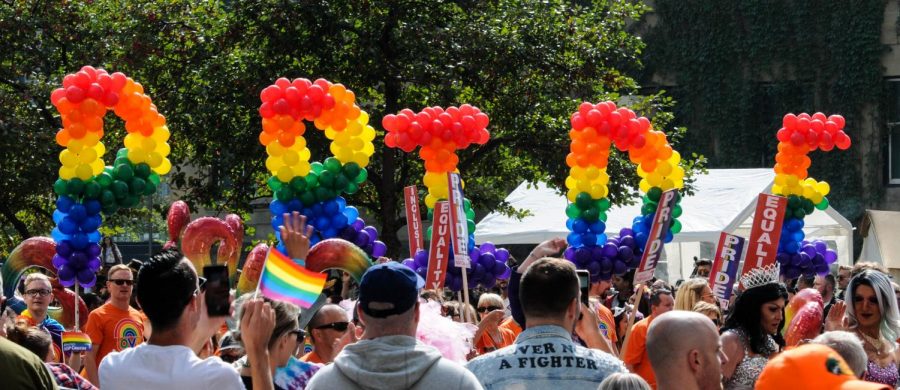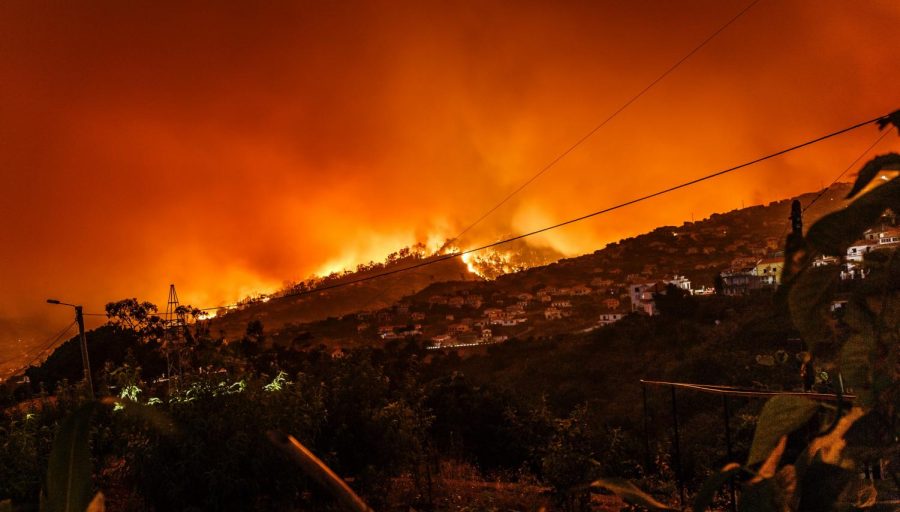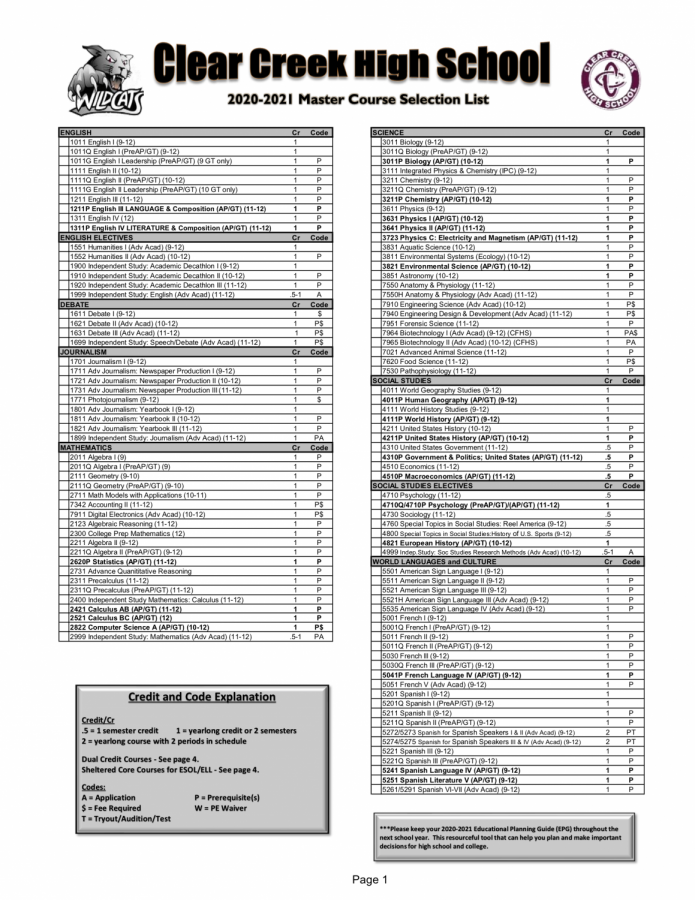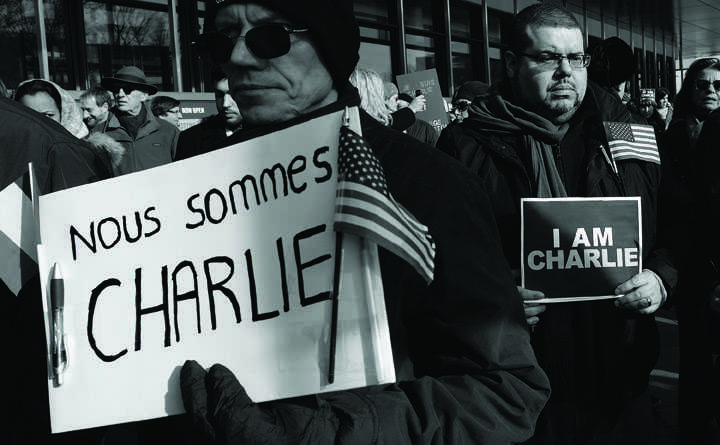Attack on Charlie Hebdo magazine sparks protests
February 5, 2015
Countries and individuals worldwide continue to condemn the fatal attack on the headquarters of satirical Parisian magazine Charlie Hebdo, which left 12 people dead and 11 more wounded.
On January 7, two masked gunmen, later identified as brothers Said and Cherif Kouachi, stormed the Hebdo office wielding AK-47 rifles, and opened fire in the lobby before entering the meeting room and shooting several staff members. Among the several slain were editor-in-chief Stephane “Charb” Charbonnier, cartoonist Jean “Cabu” Cabut and several other cartoonists, columnists, editors and staff members. Two police officers, Ahmed Merabet and Franck Brinsolaro, were also killed.
Two days after the attack, the Kouachi brothers were finally located by police and killed in an exchange of gunfire. A third unnamed 18-year-old suspect, who drove the getaway car in the attack, turned himself in, but was not charged.
Three other suspects were pursued, but one is still on the run. One of the five suspects took hostages in a supermarket and killed four before he was apprehended. France has set law enforcement on high alert. Al Qaeda claimed responsibility for the attack.
This is not the first time the Hebdo magazine was attacked. In 2011, the building was set on fire. The motives in both events were identical—the magazine boldly prints controversial cartoons depicting religious figures in a very mocking light, which many religious groups find blasphemous and disrespectful. In the most recent attack, the Kouachi brothers believed that the magazine’s illustrations of the Prophet Muhammad—whose portrayal is forbidden in Islam—were extremely sacrilegious and punishable by death. Several groups with similar beliefs had also threatened the magazine.
However, Charlie Hebdo insists that they do not mean to mock religion with strictly malicious intent. Concerning Islam specifically, the magazine believes that the best way to eliminate tensions between religious groups is to satirize them.
“We have to carry on until Islam has been rendered as banal as Catholicism,” Charbonnier said.
The attack has begun a global controversy over whether the magazine was right in its derision of religious figures. Many supporters uphold the right of the magazine to practice free speech. The slogan Je suis Charlie, French for “I am Charlie”, was created after the attack to express solidarity with Charlie Hebdo, and has since been echoed by millions across social media.
Mourners have gathered in Paris to honor the memorials of the slain journalists. Four days after the attack, over 3.7 million protesters assembled in France to display unity of the country, and millions more worldwide peacefully protested in support of the unquestionable right of free speech and press.
However, some critics of Charlie Hebdo do not support the magazine’s controversial cartoons, and some even believe the attack was justified. Concerning the various cartoons satirizing the Pope, the Catholic leader believes there are “limits” when it comes to discussing religion, and that the cartoons crossed the line.
Nevertheless, international leaders agree the attack was an assault on free speech. French president Francois Hollande honored the victims of the attack and declared a national day of mourning following the day of the shooting.
“These men and women died for the idea of France, that is, Freedom,” Hollande said.
Charlie Hebdo released their latest magazine issue with the cover referencing the attack and the unity France has shown, printing an outstanding 1 million copies read by individuals worldwide.


